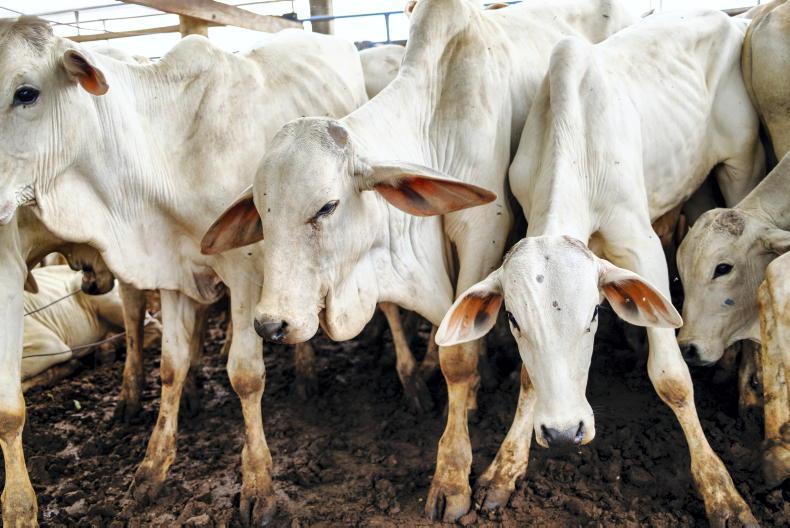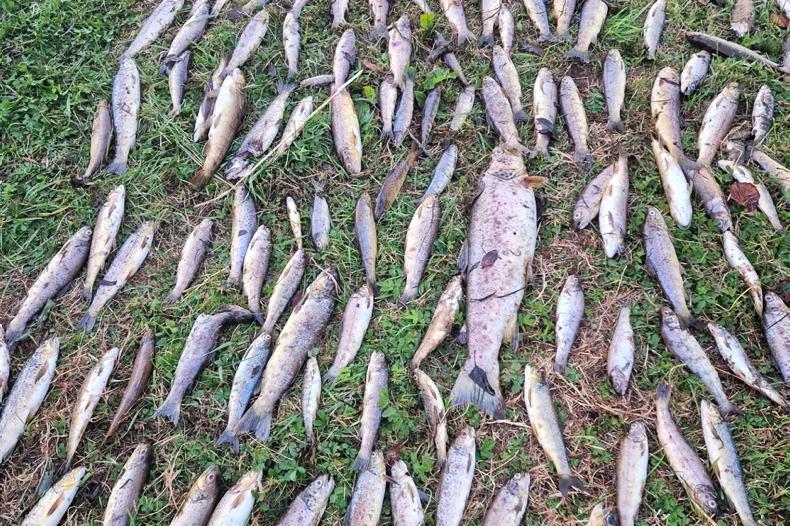The Oireachtas committee on climate action adopted its final report after seven months of work this Thursday, including a list of priority recommendations on agriculture.
All parliamentary political parties were represented and 16 of the 20 members voted in favour of the report, with Sinn Féin and Solidarity-People Before Profit voting against. Members voted on a series of last ditch amendments on Wednesday and Thursday, leading to fears that its final report might be delayed.
The committee’s priority recommendations on agriculture and land use are:
A “plan for the agriculture sector to align with meeting Ireland’s Paris agreement commitments”. This should be led by the Department of Agriculture and “specify actions and timelines to implement and promote” the list of 28 actions identified by Teagasc last year. The plan should direct funding to climate mitigation, biodiversity and carbon sequestration measures under the next CAP. The measures mentioned include rewetting and maintenance of bogs, riparian planting, agroforestry, continuous cover forestry and hedgerow conservation. The plan is due by the end of this year and should take into account the report on agriculture expected from the global Intergovernmental Panel on Climate Change (IPCC) in August. This seems to match existing plans by the Department of Agriculture to publish an “environmental sustainability roadmap for the agri-food sector" this year.
A multi-sectoral forum on “agricultural diversification and climate change”. The Department of the Taoiseach should bring together farm organisations, processors, NGOs, Government departments, Teagasc, the EPA and the Climate Action Council (a new, stronger version of the State’s existing Climate Change Advisory Council). This forum should be established as part of the National Economic and Social Council.Knowledge transfer through Teagasc. The agency should expand the role of its advisors to low-carbon farming “without imposing additional advisory costs on low-income farmers”. Independent advisors, discussion groups, farm bodies and colleges should be included in this effort to “drive behavioural change”.A “national strategy for sustainable anaerobic digestion”. The Government should have a strategy ready this year to develop “cooperatives to process slurry via AD to provide heat and energy and fertiliser to the agricultural sector and biomethane to consumers”. The strategy should look at the environmental impact and economics of the sector.A nationwide hedgerow survey. “The Government should commission a study to quantify the climate mitigation and adaptation functions of this resource by 2021”. This can then be used to tailor schemes to the management and planting of hedgerows.Two forestry reviews. “The Climate Action Council should undertake a comprehensive reviews of the climate mitigation potential of our forests” this year. This should be used to design the National Forestry Programme under the next CAP. The committee also wants the Government to commission “an inepedent review and sustainability audit of Coillte’s forest business and other activities”.
A pathway for peatlands. The idea is here is to identify how to rehabilitate and restore bogs to “achieve net sequestration from peatlands nationally by 2050”. The next budget should include funding for a national programme of rewetting and restoration.Energy measures linked to agriculture
A feed-in tariff for micro-generation. The committee asks the Department of Communications and the energy regulator to review electricity market rules by the end of this year to enable micro-generated electricity to be sold to the grid, such as power from solar panels on buildings. “This should include the provision for a feed-in tariff for microgeneration to be set at least at the wholesale price.” The committee also asked the Department to ring-fence a pot of money for electricity generated by community-led projects in the first auction of the new Renewable Electricity Support Scheme, “if possible” as early as in the first auction due this year.Relaxed planning rules for solar. Photovoltaic panels on sheds, homes and small businesses should be exempt from planning permission, with farms mentioned explicitly. The committee said the Department of Housing should change this “urgently”.Questions on large-scale biomass. The Government should re-evaluate its co-firing subsidy for peat and biomass in power stations, and Bord na Móna and the ESB should do the same with their plans for biomass “due to the lack of an indigenous supply”.A victory for common sense
IFA environment chair Thomas Cooney, who was watching the proceedings with president Joe Healy, told the Irish Farmers Journal that the final report was “a victory for common sense,” especially the support for Teagasc’s list of climate measures.
“The fact that they rejected the findings of the Citizens’ Assembly where there would be a carbon tax put on beef and dairy production – we see that they didn’t accept this proposal after an intensive campaign by us,” Cooney said.
Listen to reactions in our podcast below:
The existing carbon tax on fossil fuels will rise four-fold by 2030, however, according to the recommendations of the committee and Cooney said upcoming discussions on the allocation of this tax money should ensure that farming families without an alternative to diesel should not be penalised.
Healy added that the recommendation to divert CAP funds to address the climate challenge as “a convenient side-stepping of the need for a robust national climate action budget” – especially at a time when the proposed CAP budget is being cut.
Read more
More profitable farms have lowest carbon intensity – Teagasc
The Oireachtas committee on climate action adopted its final report after seven months of work this Thursday, including a list of priority recommendations on agriculture.
All parliamentary political parties were represented and 16 of the 20 members voted in favour of the report, with Sinn Féin and Solidarity-People Before Profit voting against. Members voted on a series of last ditch amendments on Wednesday and Thursday, leading to fears that its final report might be delayed.
The committee’s priority recommendations on agriculture and land use are:
A “plan for the agriculture sector to align with meeting Ireland’s Paris agreement commitments”. This should be led by the Department of Agriculture and “specify actions and timelines to implement and promote” the list of 28 actions identified by Teagasc last year. The plan should direct funding to climate mitigation, biodiversity and carbon sequestration measures under the next CAP. The measures mentioned include rewetting and maintenance of bogs, riparian planting, agroforestry, continuous cover forestry and hedgerow conservation. The plan is due by the end of this year and should take into account the report on agriculture expected from the global Intergovernmental Panel on Climate Change (IPCC) in August. This seems to match existing plans by the Department of Agriculture to publish an “environmental sustainability roadmap for the agri-food sector" this year.
A multi-sectoral forum on “agricultural diversification and climate change”. The Department of the Taoiseach should bring together farm organisations, processors, NGOs, Government departments, Teagasc, the EPA and the Climate Action Council (a new, stronger version of the State’s existing Climate Change Advisory Council). This forum should be established as part of the National Economic and Social Council.Knowledge transfer through Teagasc. The agency should expand the role of its advisors to low-carbon farming “without imposing additional advisory costs on low-income farmers”. Independent advisors, discussion groups, farm bodies and colleges should be included in this effort to “drive behavioural change”.A “national strategy for sustainable anaerobic digestion”. The Government should have a strategy ready this year to develop “cooperatives to process slurry via AD to provide heat and energy and fertiliser to the agricultural sector and biomethane to consumers”. The strategy should look at the environmental impact and economics of the sector.A nationwide hedgerow survey. “The Government should commission a study to quantify the climate mitigation and adaptation functions of this resource by 2021”. This can then be used to tailor schemes to the management and planting of hedgerows.Two forestry reviews. “The Climate Action Council should undertake a comprehensive reviews of the climate mitigation potential of our forests” this year. This should be used to design the National Forestry Programme under the next CAP. The committee also wants the Government to commission “an inepedent review and sustainability audit of Coillte’s forest business and other activities”.
A pathway for peatlands. The idea is here is to identify how to rehabilitate and restore bogs to “achieve net sequestration from peatlands nationally by 2050”. The next budget should include funding for a national programme of rewetting and restoration.Energy measures linked to agriculture
A feed-in tariff for micro-generation. The committee asks the Department of Communications and the energy regulator to review electricity market rules by the end of this year to enable micro-generated electricity to be sold to the grid, such as power from solar panels on buildings. “This should include the provision for a feed-in tariff for microgeneration to be set at least at the wholesale price.” The committee also asked the Department to ring-fence a pot of money for electricity generated by community-led projects in the first auction of the new Renewable Electricity Support Scheme, “if possible” as early as in the first auction due this year.Relaxed planning rules for solar. Photovoltaic panels on sheds, homes and small businesses should be exempt from planning permission, with farms mentioned explicitly. The committee said the Department of Housing should change this “urgently”.Questions on large-scale biomass. The Government should re-evaluate its co-firing subsidy for peat and biomass in power stations, and Bord na Móna and the ESB should do the same with their plans for biomass “due to the lack of an indigenous supply”.A victory for common sense
IFA environment chair Thomas Cooney, who was watching the proceedings with president Joe Healy, told the Irish Farmers Journal that the final report was “a victory for common sense,” especially the support for Teagasc’s list of climate measures.
“The fact that they rejected the findings of the Citizens’ Assembly where there would be a carbon tax put on beef and dairy production – we see that they didn’t accept this proposal after an intensive campaign by us,” Cooney said.
Listen to reactions in our podcast below:
The existing carbon tax on fossil fuels will rise four-fold by 2030, however, according to the recommendations of the committee and Cooney said upcoming discussions on the allocation of this tax money should ensure that farming families without an alternative to diesel should not be penalised.
Healy added that the recommendation to divert CAP funds to address the climate challenge as “a convenient side-stepping of the need for a robust national climate action budget” – especially at a time when the proposed CAP budget is being cut.
Read more
More profitable farms have lowest carbon intensity – Teagasc









SHARING OPTIONS